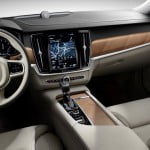If Fiat Chrysler CEO Sergio Marchionne is tempted to revive his push to acquire — I’m sorry, merge with (cough, cough) — General Motors, he might do well to consider the tale of Yoshikazu Hanawa.
Hanawa, who died this month at the age of 81, was the Nissan CEO who essentially sold control of the automaker to Renault.
Renault hadn’t been Hanawa’s first choice of buyer. He first tried peddling Nissan to Ford and DaimlerChrysler.
But Nissan was hardly an appealing acquisition target. It had lost money in eight of the previous nine years, slipping into the black that one year only because of windfall currency gains.
Liabilities, benefits
Nissan’s product lineup was bloated with low-volume cars, especially executive sedans, and light on what customers actually wanted, such as crossovers and light trucks. Even the Infiniti brand was a red-ink liability. Isn’t the whole point of luxury brands supposed to be to merit higher stickers and rake in thicker margins?
When Hanawa finally got Renault to take on the challenge that was turning around Nissan, the deal came with several significant benefits.
Above all, Louis Schweitzer, Renault’s chairman. Schweitzer was adamant that the tie-up be an alliance, not a takeover. Renault wasn’t going to give up its French-ness, and Nissan wouldn’t be asked to give up its Japanese-ness. That was part and parcel of the marching orders Schweitzer laid out for Carlos Ghosn, the executive charged with reviving Nissan.
On the home front, the Japanese government also had Hanawa’s back.
A few years earlier, Ford had stepped in to take control at a flailing Mazda. The Japanese media went into a xenophobic frenzy, denouncing the Americans in editorials and news columns as heartless restructuring agents who would stomp on Japanese traditions at Mazda and cut the soul out of the company.
When Renault took charge of Nissan, the Ford executives who had been sent to Mazda waited to see Renault raked over the coals as they had been. And waited. It never happened.
I was never able to confirm it with someone who had firsthand knowledge, but the journalists’ grapevine said the Japanese government, probably the Finance Ministry, had called in Japan’s top editorial writers and told them how it was going to be. Had Nissan gone bankrupt, as the company almost did, the Japanese economy would have taken a severe body blow.
So, the briefing supposedly went, we government bureaucrats, who essentially run the country behind the scenes, back this takeover, and any media that oppose it are declaring war on us. You don’t want to get on our bad side, do you, boys?
Internal critics
That took care of most of the external criticisms, although Hanawa bore the taunts of angry shareholders who derided him for turning over control to “occupation forces.”
Hanawa personally had to take care of the internal ones.
While Ghosn ran the show at Nissan first as COO, then president, Hanawa stayed on as chairman. He became the go-to guy for unhappy Nissan lifers. They would come to him and complain about Ghosn’s draconian changes. Hanawa would listen sympathetically, and then make it clear that there was a new sheriff in town and Hanawa wasn’t going to undercut Ghosn in any way.
It was the same role that Bill Ford Jr. played after hiring Alan Mulally. Some Ford lifers thought their ties to the Ford family might allow them some wriggle room from Mulally’s reforms. Bill Ford made it clear early and strongly that Mulally was his man, and the reforms moved ahead.
Memo to Sergio
So what does all this mean for Marchionne?
He’s peddling a company, Fiat Chrysler, that has a few strong points and a lot of areas that need work. A Nissan for this decade.
If GM were to bite, would Marchionne be prepared to play the Bill Ford/Yoshikazu Hanawa role of advising Fiat Chrysler employees that they now need to dance to the tune set by GM’s execs?
No? You think he seriously believes that he, representing the troubled company on the block, would be in charge of a merged company?
Oh, right.
News Editor James B. Treece covered the sale and revival of Nissan as Automotive News’ Tokyo-based Asia Editor in 1995-2007.
[“source-autonews”]





